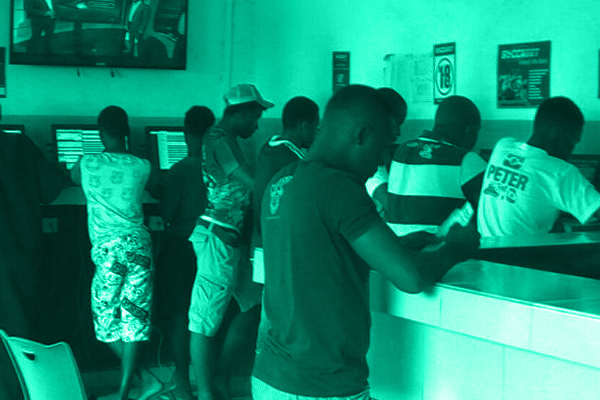In 2024, the Government of Ghana is hoping to generate some GH¢176.4 billion cedis in revenue and grants of which about 81% is expected to come from taxes.
The betting and gaming industry is expected to contribute more than GH¢1.7 billion to the revenue basket in 2024 as the Ghana Revenue Authority (GRA) targets additional GH¢583 million by roping in about 1,200 Private Lotto Operators (PLOs) who have been outside the tax net since the Authority started implementing the Gross Gaming Revenue (GGR) tax as well as the withholding tax on winnings from betting and other games of chance.
In 2023, the GRA estimated to collect approximately GH¢1.7 billion from betting and gaming firms as revenue. This revenue target is projected to cross more than GH¢1.7 billion in 2024 when all the 1,200 PLOs are brought into the fold.
The Income Tax (Amendment) Act, 2023 (Act 1094) which was passed in March 2023 to, among other things, introduce a tax on Gross Gaming Revenue (GGR) to replace corporate income tax and VAT on betting and gaming, as well as introduce a withholding tax on winnings from betting and other games of chance was projected to add a significant amount to the revenue bracket in the 2023 fiscal year.
The Act also re-introduced the Minimum Chargeable Income concept. According to the Finance Minister, Ken Ofori-Atta, the full implementation of these tax measures will take place in 2024.
Ghana is presently under an IMF Extended Credit Facility (ECF) programme and is in dying need of revenue. It has assured the Fund that it is taking measures to enhance Value Added Tax (VAT) compliance, with the e-VAT invoicing system, launched in October 2022, intended to establish electronic invoicing as the sole method for issuing VAT invoices.
According to the Fund, Ghana is facing fiscal challenges primarily due to its structurally weak domestic revenue mobilization. Several reforms are expected to be implemented or planned to address this issue, such as increasing the VAT rate from 12.5% to 15%, restructuring the E-levy, removing discounts on benchmark values at customs, and revising income-based taxes.
The contribution of tax revenue to GDP under the IMF programme is expected to increase from 13.1% last year to 14% by the end of this year. The IMF expects Ghana's tax-to-GDP ratio to rise to 14.7% in the election year of 2024, 15.3% by 2025, and 16.2% by the end of 2026. The majority of tax revenue comes from the formal sector, while the informal sector's contribution has been comparatively limited.
Latest Stories
-
Move away from theory-based learning towards practical learning approaches – AUCC President to students
6 mins -
Haaland scores as Manchester City beat Nottingham Forest
1 hour -
Villas-Boas elected Porto president
1 hour -
Situation on frontline has worsened, Ukraine army chief says
1 hour -
US doctor describes witnessing starvation in northern Gaza
1 hour -
CAFCC: RS Berkane make final after USM Alger refused to play 2nd leg over Moroccans’ jersey
1 hour -
Elon Musk in China to discuss enabling full self driving
2 hours -
PSG clinch Ligue 1 title after Lyon’s win over Monaco
4 hours -
Guinness Ghana sets the pace at Ghana Beverage Awards with six awards
4 hours -
Burkina Faso suspends BBC, VOA radio broadcasts over killings coverage
4 hours -
Nicole Kidman honoured with AFI Life Achievement Award
4 hours -
Brassier scores winner for Brest as they edge Rennes to secure European football
5 hours -
Akufo-Addo jabs Ejisu independent candidate; rubbishes allegations to rig by-election
5 hours -
‘What are the real causes of the erratic power outages?’ GUTA asks ECG
5 hours -
Implementing ESG framework in Ghana’s energy sector for sustainability
6 hours

